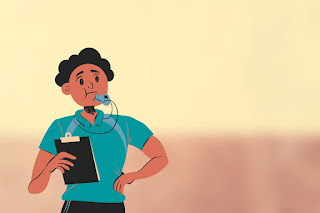The head coach in a football team holds a pivotal role and is responsible for overseeing various aspects of the team's operations, strategy, and player development. Their role extends beyond game day and encompasses both on-field and off-field responsibilities. Here are some key responsibilities and roles of a head coach in football:
Team Leadership: The head coach is the leader of the entire team. They set the team's vision, establish the team's culture, and provide guidance and motivation to the players and coaching staff. They are responsible for fostering a positive and cohesive team environment.
Game Planning and Strategy: The head coach plays a crucial role in devising game plans and strategies for each opponent. They analyze the strengths and weaknesses of the opposing teams and formulate a plan to maximize their team's chances of success. This involves studying film, analyzing statistics, and collaborating with assistant coaches.
Player Development: The head coach is responsible for developing players' skills, both individually and collectively. They design and implement practice sessions, drills, and training programs to enhance players' abilities and prepare them for competition. They work closely with position coaches to ensure players are progressing and reaching their full potential.
Play Calling and In-Game Decision Making: The head coach often has a role in play calling, especially on one side of the ball (offense or defense). They make crucial decisions during games, such as calling timeouts, managing the clock, deciding whether to challenge plays, and determining the overall strategy in critical situations.
Team Management: The head coach is involved in managing the team's roster, including player acquisitions, trades, and releases. They work closely with the general manager and other front office staff to build a competitive roster and make personnel decisions. Additionally, they handle disciplinary actions, motivate players, and maintain team discipline.
Media and Public Relations: Head coaches represent the team in press conferences and media interactions. They act as the face of the team and are responsible for effectively communicating with the media, fans, and stakeholders. They handle interviews, provide updates on team news, and manage public relations matters.
Mentorship and Leadership Development: A head coach serves as a mentor and role model for players and assistant coaches. They provide guidance, mentorship, and support to help individuals grow both personally and professionally. They create an environment that fosters leadership and promotes the development of future coaches.
In summary, the head coach in a football team is responsible for the overall direction and management of the team. They lead the team, develop strategies, oversee player development, make critical in-game decisions, manage team affairs, handle media relations, and provide mentorship to players and assistant coaches. Their role is crucial in shaping the team's success and establishing a strong and cohesive football program.
Photo: Pixabay (free)

No comments:
Post a Comment
Thanks for your comment.